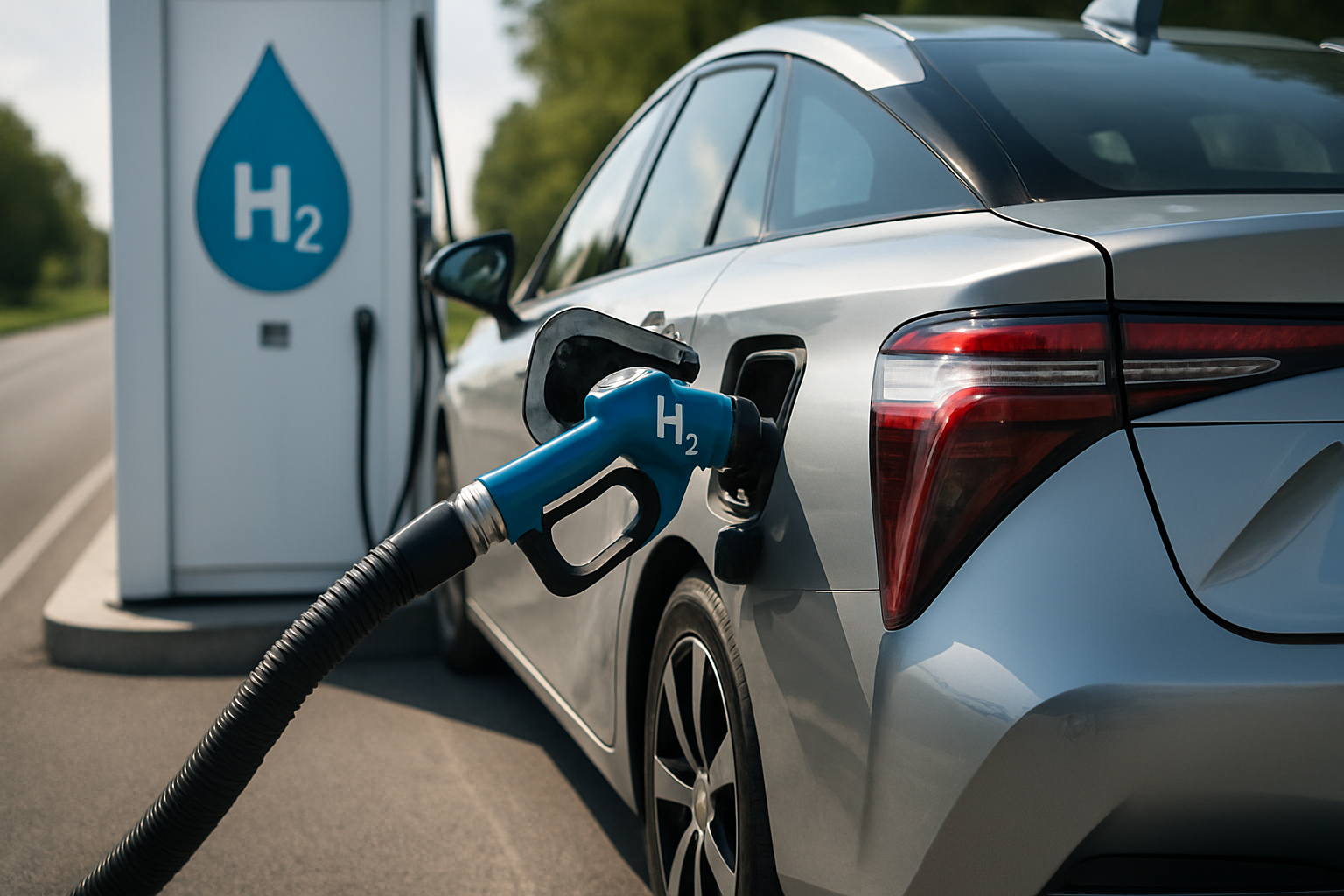Hydrogen Fuel Cells: Reinventing the Future of Transportation
The automotive world stands on the brink of a revolutionary shift, with hydrogen fuel cell technology emerging as a promising contender in the race for sustainable transportation. This cutting-edge power source combines the convenience of quick refueling with zero-emission driving, potentially offering a solution to the environmental challenges posed by traditional combustion engines. As we delve into the intricacies of hydrogen fuel cells, we'll explore how this technology could reshape our roads and redefine the concept of clean mobility.

From Space Race to Race Track
The concept of fuel cells isn’t new; it dates back to the 1830s. However, their practical application in vehicles gained traction during the space race. NASA’s Gemini and Apollo missions utilized fuel cells, proving their reliability in extreme conditions. This space-age technology is now making its way to our highways, with several major automakers investing heavily in hydrogen-powered vehicles. The transition from rockets to road cars has required significant engineering feats, particularly in miniaturizing the technology and ensuring its safety for everyday use.
Infrastructure: The Missing Link
One of the biggest hurdles facing hydrogen fuel cell vehicles is the lack of refueling infrastructure. Unlike battery electric vehicles that can be charged at home, hydrogen cars require specialized filling stations. Countries like Japan and Germany are leading the charge in developing hydrogen infrastructure, but global coverage remains sparse. The chicken-and-egg dilemma persists: consumers are hesitant to buy hydrogen vehicles without adequate refueling options, while companies are reluctant to invest in infrastructure without a substantial fleet on the roads.
Performance and Practicality
Hydrogen fuel cell vehicles offer several advantages over their battery-electric counterparts. Refueling times are comparable to conventional gasoline vehicles, typically taking just a few minutes. Range anxiety is less of a concern, with many hydrogen cars capable of traveling 300-400 miles on a single tank. The power delivery is smooth and instant, providing a driving experience that rivals traditional combustion engines. However, the technology isn’t without its challenges. The cost of fuel cells remains high, and the energy efficiency of the hydrogen production process is a point of contention among critics.
Environmental Impact: A Holistic View
While hydrogen fuel cell vehicles emit only water vapor during operation, the environmental impact of hydrogen production must be considered. Currently, most hydrogen is produced from natural gas through a process called steam methane reforming, which does release carbon dioxide. However, there’s growing interest in “green hydrogen” produced through electrolysis powered by renewable energy sources. This method could potentially create a truly zero-emission cycle from production to consumption, revolutionizing the concept of clean transportation.
The Road Ahead: Challenges and Opportunities
As hydrogen fuel cell technology matures, several challenges remain. Reducing production costs, improving fuel cell durability, and addressing safety concerns related to hydrogen storage are all active areas of research. The automotive industry is also grappling with how to position hydrogen technology alongside battery electric vehicles. Some experts envision a future where hydrogen powers larger vehicles like trucks and buses, while batteries dominate the personal vehicle market. Others see potential for hydrogen across all vehicle categories.
Conclusion: A Piece of the Clean Energy Puzzle
Hydrogen fuel cell technology represents a fascinating avenue in the quest for sustainable transportation. Its potential to offer zero-emission driving with the convenience of quick refueling makes it an attractive option for consumers and automakers alike. However, the path to widespread adoption is riddled with technical, economic, and infrastructural challenges. As research progresses and costs decrease, hydrogen fuel cells may well play a significant role in our clean energy future, complementing other technologies in the diverse landscape of sustainable transportation.






